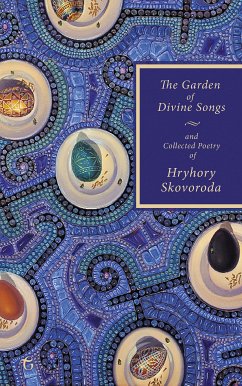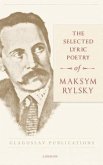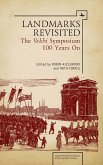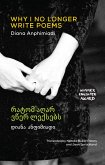Hryhory Skovoroda is considered by many as the first great Slavic philosopher and poet. Written over a period stretching from the 1750s until 1785, his The Garden of Divine Songs is a unique collection of 30 poems, featuring a complex system of strophic structures and with only a few of the songs written in a traditional way. Skovoroda never repeats one and the same strophic structure; this being the case, his Garden of Divine Songs according to writer-scholar Valery Shevchuk functions as a "practical guide to the art of poetry", exemplifying all the meters and strophic patterns that were possible in Ukrainian poetry of that time. The poet makes masterful use of the accomplishments of academic poetry; the so-called "songs of the world" are the most prominent poems in this collection.
These songs are an expression of Skovoroda's views in poetic form, and many ideas from The Garden of Divine Songs, such as the search for happiness in the world in song 21, would later form the basis for some of Skovoroda's philosophical treatises. Skovoroda's originality, and his ability to approach the most cardinal problems of human existence, stem from his capacity to combine known motifs, borrowed from literary sources such as classical texts, the Bible, and ancient Ukrainian poetic works, with his own system of thinking that focuses on his philosophy of the heart.
The complete poems of Skovoroda are appearing in their entirety here in English for the first time, accompanied by a guest introduction by prominent Ukrainian writer Valery Shevchuk.
This title has been realised by a team of the following dedicated professionals:
Translated by Michael M. Naydan with an introduction by Valery Shevchuk
Translations Edited by Olha Tytarenko
Maxim Hodak - ¿¿¿¿¿¿ ¿¿¿¿¿ (Publisher),
Max Mendor - ¿¿¿¿ ¿¿¿¿¿¿ (Director),
Ksenia Papazova (Managing Editor).
These songs are an expression of Skovoroda's views in poetic form, and many ideas from The Garden of Divine Songs, such as the search for happiness in the world in song 21, would later form the basis for some of Skovoroda's philosophical treatises. Skovoroda's originality, and his ability to approach the most cardinal problems of human existence, stem from his capacity to combine known motifs, borrowed from literary sources such as classical texts, the Bible, and ancient Ukrainian poetic works, with his own system of thinking that focuses on his philosophy of the heart.
The complete poems of Skovoroda are appearing in their entirety here in English for the first time, accompanied by a guest introduction by prominent Ukrainian writer Valery Shevchuk.
This title has been realised by a team of the following dedicated professionals:
Translated by Michael M. Naydan with an introduction by Valery Shevchuk
Translations Edited by Olha Tytarenko
Maxim Hodak - ¿¿¿¿¿¿ ¿¿¿¿¿ (Publisher),
Max Mendor - ¿¿¿¿ ¿¿¿¿¿¿ (Director),
Ksenia Papazova (Managing Editor).
Dieser Download kann aus rechtlichen Gründen nur mit Rechnungsadresse in A, B, BG, CY, CZ, D, DK, EW, E, FIN, F, GR, H, IRL, I, LT, L, LR, M, NL, PL, P, R, S, SLO, SK ausgeliefert werden.









